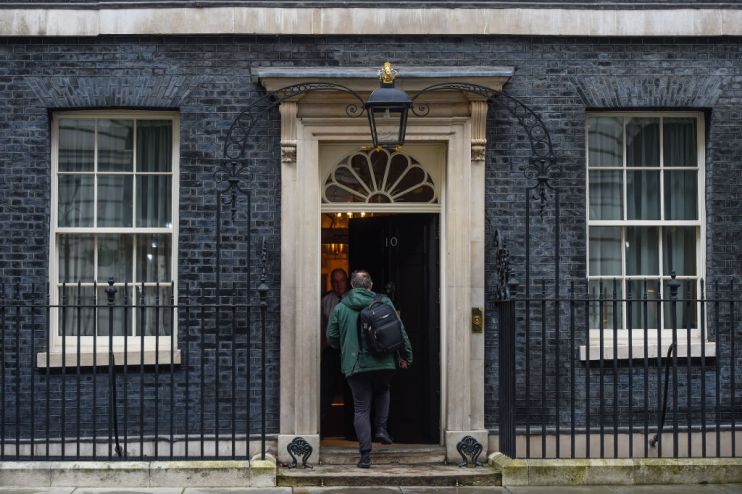Exclusive: MPs warn over scrutiny as Downing Street prepares to ‘anoint’ friendly face in key role

Downing Street is considering a controversial move to appoint its own chair of a powerful parliamentary committee – subverting parliamentary convention.
The move would be seen as the latest attempt by Number 10 to avoid scrutiny after recent brouhahas over journalists’ access to key briefings.
The chair of the Liaison Committee – the only committee with the power to call the Prime Minister to give evidence – has in recent parliaments been nominated by the members of the committee. However, City A.M. understands that plans are afoot to override that convention and for Number 10 to propose their own choice of candidate in place.
Since 2010, rules have been in place to ensure that committees related to government departments are nominated by members of the House of Commons. No such provision is written into regulations to ensure the Liaison Committee is free from government interference.
Backbenchers have also been told the chair may not even be drawn from the select committees, opening up the possibility that a “government-anointed” name could be brought in, according to two sources.
One pointed to recent comments by leader of the house Jacob Rees-Mogg confirming that the chair did not need to be a member of any committee.
In response to a question about the appointment of the chair, the close Downing Street ally said: “In the last Parliament, the Chairman was from the Committee, but that is not a requirement of Standing Orders. It could be somebody else.”
Multiple Conservative MPs told City A.M. of their fear such a move could have on scrutiny.
One committee chair said: “Of course it’s concerning. You want committees to have the opportunity to hold the Prime Minister to account. He has been PM since July and it’s nearly March. The message is ‘if you think he is ever going to appear, dream on’.”
Johnson is yet to appear in front of the Liaison Committee, despite being Prime Minister for seven months. The committee aims to meet with the PM “three times a year,” according to its website.
The source noted that a Number 10-backed “anointed” chair would likely try to ensure “other chairs were bogged down in strategies, boring on about budgets and technicalities.”
Without a strong opposition there was a “void” in the way the government was being held to account, the source said, pointing to Johnson’s cancelled appearances last year.
“Look at the PM’s performance so far in front of the Liaison Committee – oh you can’t!”
Another committee chair said former Conservative MP Sarah Wollaston had “upset” Number 10, and there were fears that some current Tories could present a similar threat.
She noted that Number 10 had also been holding off convening the various select committees, now expected to be next week, which means the earliest the Liaison could call Boris Johnson would be April.
“The excuse was that we couldn’t do it because of the reshuffle. But even if we had to swap people out, we would have had a quora and been able to start meeting. As it is, we’ve had to wait even longer [since the election]. I don’t know if it ‘s cock up or conspiracy, but my gut says conspiracy.”
Separately, Number 10 has been described as “dragging its feet” on appointing a head of the Intelligence and Security Committee, a prerequisite for the publication of the so-called Russia report into the Kremlin’s interference in Britain’s political system.
Several MPs pointed to Dominic Cummings, the Prime Minister’s chief adviser, as being behind the move. “He doesn’t like the [Liaison], he sees it as an unnecessary hurdle to world domination.”
Last week CityAM revealed that Cummings was looking to block any the PM from appearing before the committee.
“The way Dom sees it, you have to grip and totally control the message… In that context, I would be pretty surprised if Dom let the PM sit down in front of the committee.”
But another committee chair was sceptical, warning of backbench outrage at such a move.
“It will blow up in their faces if they do it,” he said. “It will be such an obvious attempt to avoid scrutiny, it would probably do more harm than good. There would be quite a lot of push-back.
“Hopefully wiser heads will prevail.”
Downing Street did not respond to requests for a comment.